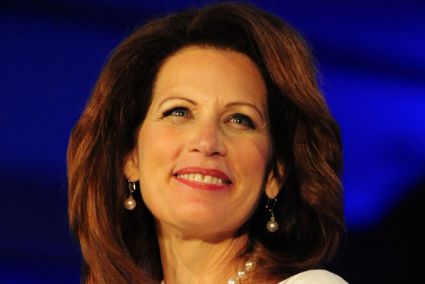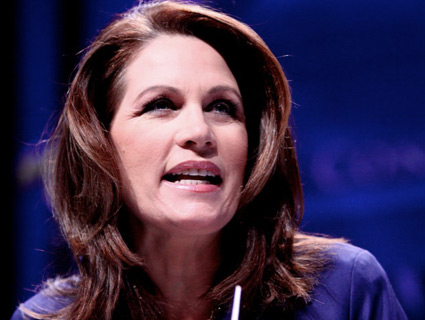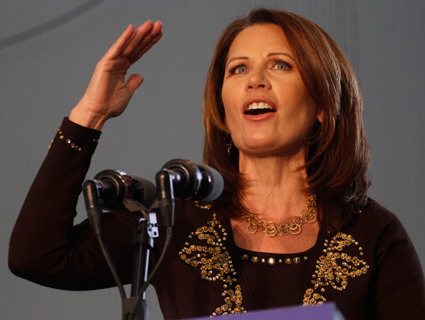Over at the Plum Line, Jonathan Bernstein takes the media to task for spending so much time focusing on Michele Bachmann’s embarrassing slip-up on Monday, in which she confused American icon and Iowa native John Wayne with serial-killing clown and Iowa native John Wayne Gacy. He’s also irked that ABC’s George Stephanopolous wasted precious time grilling Bachmann about her assertion that the Founding Fathers worked to end slavery:
So what counts as a “gaffe” in the eyes of the press corps?
We’re getting an excellent lesson in it this week, with the formal rollout of the Michele Bachmann presidential candidacy. Bachmann is taking heat for what seems to me to be a relatively minor mistake in Americana and for a misstatement of early American history.
You know what’s not getting nearly the same treatment? Bachmann has been going around for some time now, including on her Sunday TV appearances, spouting absolute nonsense about the debt ceiling. She’s claiming that somehow it would be no big deal if the limit wasn’t raised.
That’s a fair point (and, ahem, here’s our coverage of the debt ceiling fight). But I’d expand that much, much further to cover a whole range of other issues that inevitably get buried once the campaign kicks into gear. The relevant point, after all, really isn’t that Bachmann says crazy things; it’s that she believes those things, and that those ideas are a fundamental part of her political ideology. For instance, as Bachmann noted in her kickoff speech, she launched her political career by opposing Minnesota’s state curriculum standards. What was the nature of her opposition? She and her allies argued that the standards were part of a United Nations plot to acclimate children to a pantheistic, pro-abortion, Soviet-style, one-world state—and George H.W. Bush was in on it! Given the current heated debate over education reform, that seems like a pretty ripe topic to bring up in an interview. Certainly more so than the debate over slavery, which has been dormant for a while.
Bachmann’s detractors, particularly in Minnesota, tend to believe that her rise has been aided by the failure of mainstream news organizations to look critically at her political views and associations. Her supporters, meanwhile, suggest that she’s a victim of the sloppy tendency to focus on trivial verbal slip-ups rather than substantive issues. Two weeks into her presidential campaign, at least one thing is clear: They’re both right.
















